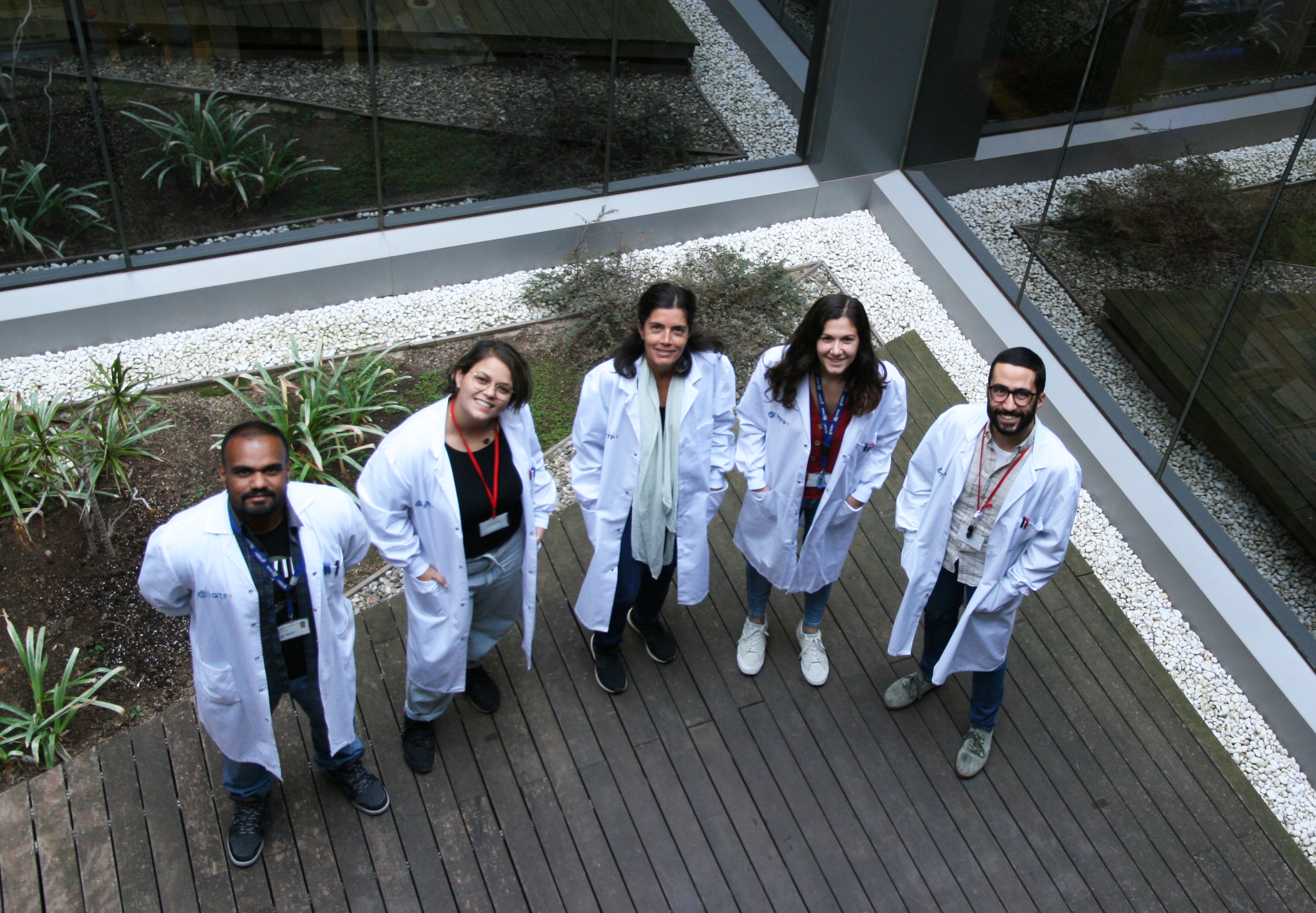A project that develops a new immunotherapy based on a monoclonal antibody to treat cancer is one of the three initiatives chosen by CaixaResearch Consolidate

Photo, from left to right: Tony Paul, Érica Téllez, Mª Rosa Sarrias, Lídia Sánchez-Moral, Miquel de Homdedeu.
- The CaixaResearch Consolidate 2022 call for proposals resulted in the selection of three promising innovative biomedical projects. Each will receive 300,000 euros of funding to help their innovations reach the market and society as a whole.
- The projects receiving this support focus on: the development of a new medical device to improve the monitoring of electrical brain signals in newborns and adults; new drugs to reduce pain; and a monoclonal antibody to treat cancer.
- Besides financial support, the researchers whose projects are selected in this call, aimed at promoting knowledge and technology transfer in the field of biomedicine and health, will also receive personalised mentoring and expert support.
- "La Caixa" Foundation promotes this support programme in cooperation with Caixa Capital Risc.
A project that develops a new immunotherapy based on a monoclonal antibody for cancer treatment, led by the Innate Immunity group at the Germans Trias i Pujol Research Institute (IGTP), is one of the three selected projects in the CaixaResearch Consolidate grants of “la Caixa” Foundation to cutting-edge biomedical innovation projects. The ultimate goal of this grants programme is to support mature projects such as the three now selected to enable them to take the step from the laboratory to the market and society, and to encourage the creation of new companies or solutions based on research with a view to improving people's health and quality of life.
The others winners of this year's call are projects by Rovira i Virgili University (URV), in consortium with researchers from the Pere Virgili Health Research Institute (IISPV), aimed at creating new medical devices to improve the monitoring of electrical brain signals in newborns and adults and the Bosch i Gimpera Foundation, of the University of Barcelona, in consortium with researchers from the University of Granada and the University of Catania, to develop new drugs to reduce pain.
These projects will each receive funding of 300,000 euros to assist in their development over the next two years. The support will be devoted to such areas as the technological development of the asset, studies for regulatory approval, recruitment of personnel and intellectual property management, among others.
The researchers will also receive personalised mentoring and other support, such as expert advice in drawing up development and marketing plans.
Since 2015, "la Caixa" Foundation has devoted 18 million euros to 173 innovative projects via CaixaResearch Validate - a call for proposals for innovations at their earlier stages - and CaixaResearch Consolidate. These projects have generated additional investment of more than 10 million euros and the establishment of 29 spin-offs.
The project: A monoclonal antibody to treat cancer
- Principal investigator: Maria Rosa Sarrias, Germans Trias i Pujol Research Institute
- Funding: 300.000 euros
The World Health Organisation names cancer as a leading cause of death worldwide: nearly 10 million people died from tumours in 2020 alone. Although multiple treatment options are available, few offer curative solutions.
The immune system acts as a sentinel for the appearance and growth of tumours. However, some tumour cells manage to "manipulate" this sentinel, "educating" it so that it does not recognise them as malignant and works in their favour, by producing blood vessels to supply them with nutrients and oxygen, for example. In response to this, therapies aimed at "re-educating" and boosting the immune system's reaction have been developed in recent decades, leading to a major breakthrough in the treatment of tumours for which there was previously no cure.
Immune cells known as macrophages play a key role in these treatments. These cells are also the most prevalent in tumours, making them a promising target for immune therapies.
In this project, the researchers aim to develop a new immunotherapy based on a molecule (monoclonal antibody) directed against tumour macrophages that could become a first-in-class treatment for cancer patients. The monoclonal antibody targets a critical checkpoint protein and reprogrammes macrophages for anti-tumour activity. In preclinical trials, administration of the antibody prevented lung tumour growth.
The project will enable the researchers to advance in studies of the effects of the antibody in cancer treatment and in its development as a preliminary step towards potential use in patients.
